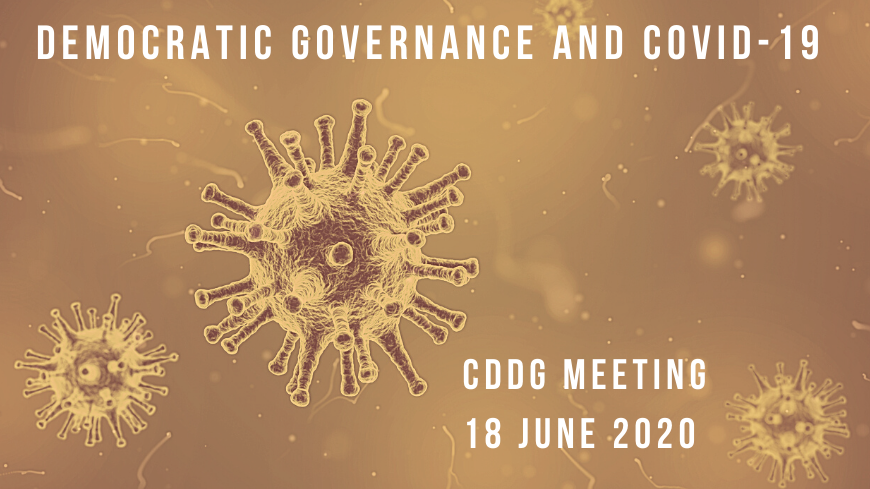Democratic Governance and COVID-19

The effectiveness of the response to the Covid-19 emergency greatly depends on the level of coordination and cooperation between the different actors involved. It also depends on the active participation of civil society, as regards not only the respect of confinement measures but also the direct involvement in voluntary work aimed at sustaining the response effort.
It is crucial for the response to Covid-19 to comply with fundamental principles of democracy. Compliance with standards of good democratic governance as set out in the 12 Principles of Good Democratic Governance is equally important to ensure that, in all member States, citizens and civil society at large can continue to benefit from the provision of essential services, with minimum disruption, and have trust in the authorities.
Delivering democratic governance while responding to this unprecedented public health emergency requires leadership, adaptability and innovation. This webpage provides information, case studies and practical tools which can help member States tackle this complex challenge.
in the field of:





